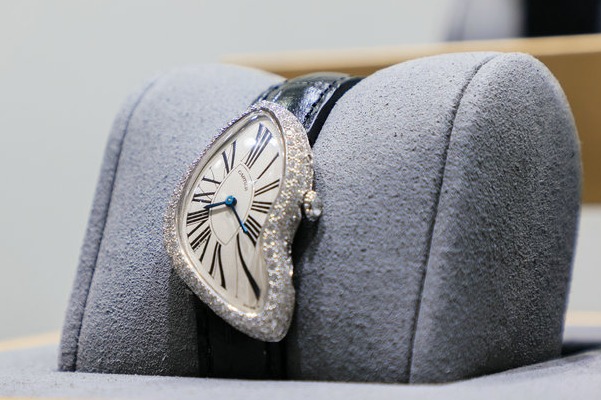The voice behind 600 silent success stories


Many people believe that special education teachers for hearing-impaired children primarily teach sign language. Meet Li Hongjia, 33, who works at Xiaokuihua Rehabilitation Center in Wuhan, Central China's Hubei province, specializing in hearing recovery and language acquisition. She doesn't know sign language.
Having dedicated over 15 years to assisting hearing-impaired children, Li has helped more than 600 of them learn to speak.
According to her, although many adults with hearing impairments use sign language, for people who don't know sign language, communicating with them can be challenging. This is why Li's been dedicated to teaching listening-impaired children to speak. "Most listening-impaired children have healthy vocal cords," she said. "And with technological advancements and proper and early intervention, they can speak and have various options for their future."
Li points out that with the use of hearing aids and cochlear implants, most children will regain their hearing, except those who have auditory nerve disease or severe cochlear malformations. "Hearing sounds is just the first step, they need to learn to identify and understand these sounds," she said.
Li stresses that the golden period for listening-impaired children's language acquisition is 2 to 6 years old, which is also the common age range for her students.
"In many facilities, they tend to follow hearing recovery with language acquisition, but I usually do them simultaneously. I want to make sure even if they have severe conditions that may not allow them to hear as well as others, they can still speak," she said.
To help children identify and understand sounds, Li uses various methods, such as having them touch her throat while she speaks, using instruments like triangle irons and drums for sound recognition, and asking them to hand her objects in the room, such as a cup.
Li highlighted that imitation is crucial in language acquisition, listening-impaired or not.
"If they don't have the basic ability to imitate, we cannot begin speech training," said Li. "I've had students with developmental delays, and I would start by asking them to imitate my movements while ensuring they maintain attentiveness and eye contact."
For the speaking part, Li initially encourages laughter. "The vocal cords are most relaxed when we cry or laugh," she said. "When a child laughs, I would praise them and tell them 'Yes, you've just made a sound!'"
Nowadays, Li's schedule is packed with classes from 7 am to 8 pm with a half-hour lunch break in between. Most of the recovery classes are one-on-one sessions lasting 50 minutes, with Li leading for 30 minutes and her assistant teacher staying for the rest. This is how she could help 24 children in one day.
Li faced countless challenges, especially in the first few years. There were moments when she cried and suspected that the students were failing on purpose in her most fragile times. Once, she had to repeat the process of getting a cup 200 times before the child finally got it right. Another time, she had a student with facioplegia, requiring her to massage the child's face repeatedly with hot and cold water.
Li shared a touching story about a student with congenital underdeveloped cochleae, who doesn't have any cochleae at all, making her unable to receive an implant. The little girl hails from South China's Guangxi Zhuang autonomous region. Being far from home, she would cry and cling to Li when it was time for Li to get off work.
"I took care of her both at school and at home for a year and a half," Li said. "It took her six months to identify the sound of the triangle iron and I felt close to a mental breakdown. However, the moment she handed me the lollipop I asked for, I realized that we shouldn't give up on any child."
Despite her experience and expertise, Li still tears up and gets sentimental every time a child utters their first words. The sense of fulfillment never gets old for her.
"My nickname is Rongrong, and the children affectionately call me Rongrong Mama," said Li.
Reflecting on the past, Li noted that there were no specialized majors in special education when she first started. "Now, more and more Gen Zers are pursuing careers in special education," Li said. "I hope more will join us because helping one child recover means healing an entire family."
Regarding what others can do, Li suggested maintaining an open mind and exercising patience.
"When you see one of these children, please don't act surprised or point. While talking to them, be patient and repeat your words when necessary," she said.


































